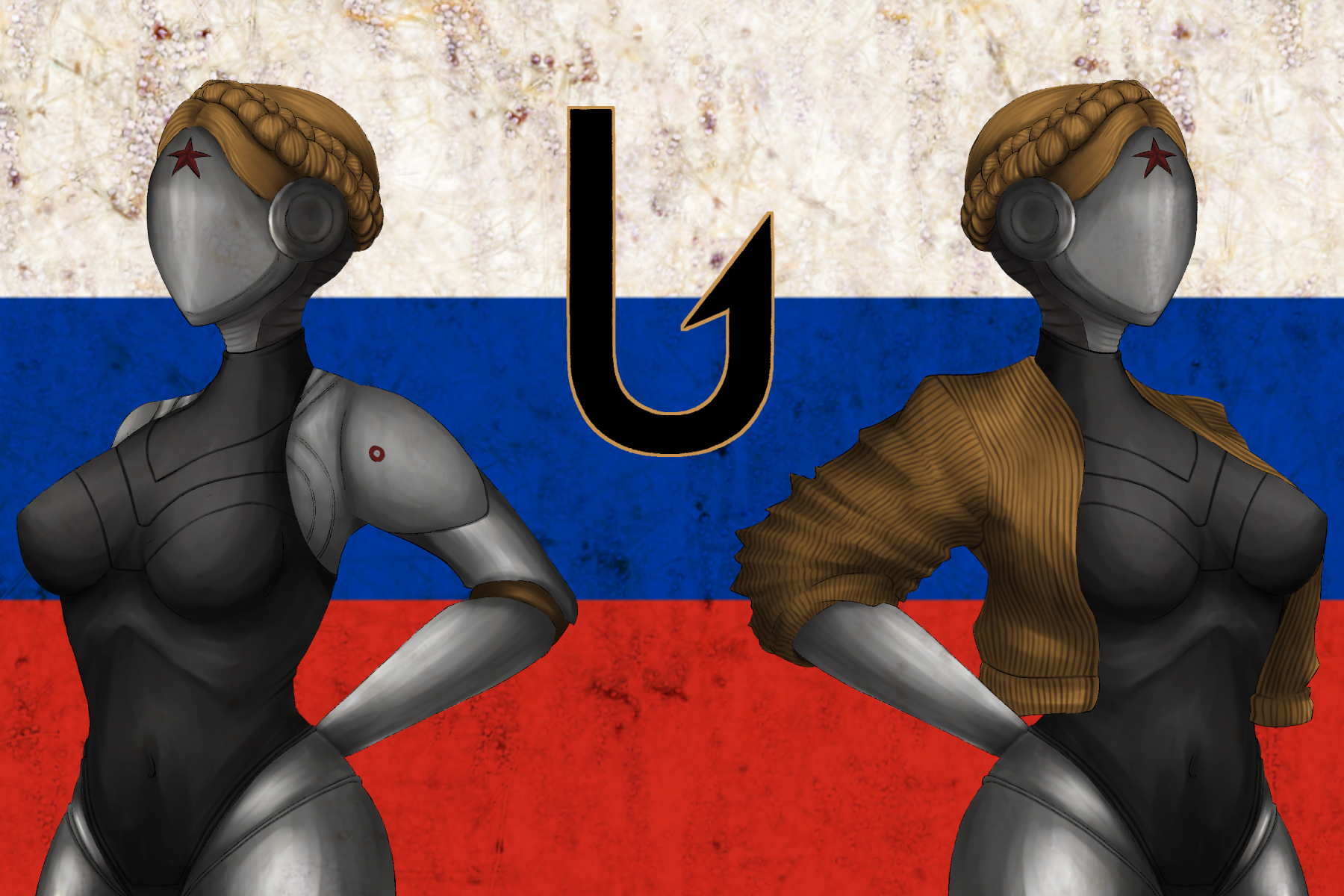After five long years of development, video game developer Mundfish finally released Atomic Heart on Feb. 21, 2023, to consoles and PC. The much-anticipated first-person shooter is set in an alternate timeline where the Soviet Union achieved spectacular technological advancements in the wake of World War II. Atomic Heart received generally positive reviews, but controversy erupted in the weeks preceding its release over claims that it had Pro-Russian sympathies and Russian funding.
Possible Russian Ties
Most gamers reacted positively to the aesthetic design and action-packed gameplay of Atomic Heart, comparing it to 2007’s Bioshock (often regarded as one of the best video games of all time). Similar to Bioshock, players of “Atomic Heart” find themselves in a utopian society gone awry; they must utilize a combination of weapons and sci-fi powers to battle their way through violent opposition.
However, it is not the gameplay itself that has sparked controversy. In a YouTube video titled “Please Don’t Buy Atomic Heart,” Ukrainian content creator Harenko levies a number of allegations against Mundfish, the game’s developer. The video, which accumulated over two million views, claims that Mundfish has close ties to the Russian government — a relationship that is problematic in light of the nation’s ongoing invasion of its neighbor, Ukraine.
Harenko claims that Mundfish’s CEO, Robert Bagratuni, formerly worked at VK, Russia’s largest social media platform; whereas its founder, Evgenia Sedova, formerly worked for Newmedia Stars, a state-sponsored multimedia company. Harenko’s implication is that Mundfish is likely to have Russian connections due to the past occupations of its higher-ups. However, the strength of this argument is up to individual interpretation.
Questionable Investors
A more concrete accusation revolves around Mundfish’s array of investors. Gaijin Entertainment and GEM Capital (both of Russian origin) provided substantial funding for Atomic Heart. GEM Capital’s founder, Anatoliy Paliy, allegedly boasts ties to Gazprom, a state-owned oil and gas company.
Coincidentally, Gazprom holds a majority stake in VK, one of Atomic Heart’s publishers. It wouldn’t be inaccurate to state that the game has received funding, albeit indirectly, from the Russian government. Nevertheless, one should refrain from misinterpreting this information; Atomic Heart is not a state-sponsored propaganda project.
Harenko attempts to extrapolate these Russian connections, suggesting that the revenue from Atomic Heart sales will contribute to the Russian war effort in Ukraine.
Brink of Art, a fellow YouTuber, addressed the logistics of this claim in a response video to Harenko. Considering that the 2023 Russian defense budget is projected to be approximately $84 billion, Atomic Heart’s revenue would barely be a drop in the bucket. Keep in mind that only a fraction of the game’s profits would go to Mundfish’s investors, and only a sliver of that fraction would ever contribute to the national budget.
A single Russian fighter jet costs approximately $47 million to produce. At $69.99 a pop, that equates to about 671,400 copies of Atomic Heart. Of course, this is a tongue-in-cheek example, but it should demonstrate the flawed logic in claiming that this video game is funding Putin’s war in any meaningful way.
Soviet Setting or Soviet Sympathies?
In addition to the investor controversy, Atomic Heart has also been targeted for allegedly harboring pro-Soviet sentiments. Set in the USSR in an alternate 1950s, the game depicts a utopian society that is flourishing as a result of Russian advancements in robotics and artificial intelligence.
It is important to emphasize the phrase “alternate 1950s.” The world that Mundfish developed takes inspiration from Soviet architecture and aesthetics, but it in no way creates a false narrative about the Soviet Union. On the contrary, this timeline is inherently interesting because it differs so vastly from the real-life USSR.
Wolfenstein: The New Order, a critically acclaimed first-person shooter from 2014, depicted an alternate universe in which Nazi Germany won World War II and conquered the planet. The regime is portrayed as technologically advanced and extremely powerful, but no one asserts that the game holds pro-Nazi sympathies. Why should Atomic Heart be any different?
Players of the game may notice that Atomic Heart is regularly critical of Russian exceptionalism — the assertion of Russia’s superiority over liberal Western democracies, who fail to understand the country’s motives. Although the player character, a KGB agent named “P-3,” initially has complete confidence in his superiors, this blind loyalty starts to erode as the plot unfolds.
P-3 spends the game investigating an incident in which Russian robots went berserk, murdering thousands of citizens in the secretive Facility 3826. The Soviet government is desperate to conceal the tragedy, for fear that Western nations may learn of the blunder. The attempted coverup is arguably reminiscent of the real-life USSR’s reaction to the 1986 Chernobyl disaster. In both cases, the nation proved reluctant to show weakness or folly.
If the game is an attempt at Soviet glorification, it’s doing a pretty bad job.
Developer’s Response
Mundfish moved its studio to Cyprus in 2022, possibly to distance itself from Russia’s current political climate. Though it describes itself as a “pro-peace organization,” the developer never explicitly condemned the invasion of Ukraine. While some may judge the studio’s evasiveness, it’s important to note that an anti-Russian stance would, at best, drive off their investors and, at worst, put their lives in jeopardy.
The studio’s website claims that Mundfish is not a political tool, nor does it have ties to any government. They promise to not “propagate anything other than gaming.”
They also state, “[Atomic Heart] is simply just a game that has been under development for the past five years,” perhaps to emphasize that their development cycle predates the Russian invasion.
Gamers must decide for themselves whether or not Atomic Heart is worthy of purchase. Some may boycott the game on principle, but the principle in question is based on misleading claims. The game is not directly funded by the Russian government, nor does it propagate pro-Russian, pro-communist or pro-military ideas.
It would be a crucial error to punish Mundfish for the condemnable actions of their home country. After all, they are not in control of their nationality, and judging them for this factor alone is prejudiced. Many people must be held accountable for the reprehensible war in Ukraine, but the game developers of Atomic Heart should not be added to that list.


















Dumbest article I’ve ever fucking read, stop sucking r*ssian dicks please
It’s not uncommon for a game to receive positive reviews but be mired in controversy before its release. PolyTrack